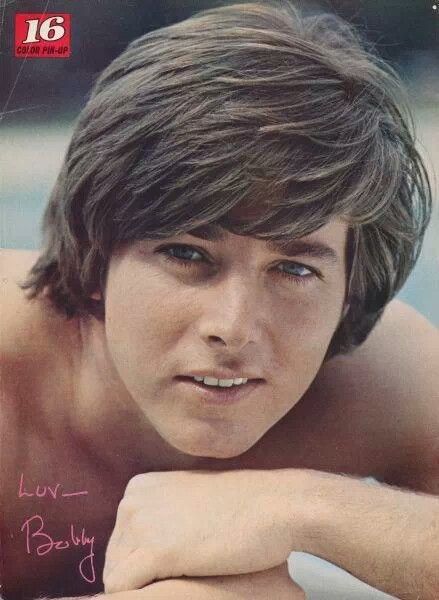
Finding Your Melody in a Changing World
Ah, the late 1960s and early 1970s. A time of seismic shifts, wasn’t it? The world seemed to be spinning faster, traditions were being questioned, and a new generation was finding its voice. Amidst this cultural upheaval, a youthful earnestness often shone through, particularly in the realm of popular music. And few captured that blend of innocence and burgeoning independence quite like Bobby Sherman. His 1969 hit, “Make Your Own Kind of Music,” wasn’t just a catchy tune; it became an anthem, a gentle nudge towards self-acceptance in a time when individuality was both celebrated and, at times, scrutinized.
When “Make Your Own Kind of Music” first graced the airwaves, it quickly resonated with listeners, climbing to a respectable number 26 on the Billboard Hot 100 chart in the United States. This was a significant achievement for Bobby Sherman, who, by this point, had already cemented his status as a teen idol, charming audiences with his boy-next-door appeal and wholesome image. But this particular song, with its optimistic message and undeniably hummable melody, seemed to strike a deeper chord, transcending his usual fan base to touch a broader audience. It wasn’t merely a pop song; it was a sentiment, a philosophy distilled into three minutes of harmonious encouragement.
The story behind “Make Your Own Kind of Music” is as straightforward and heartwarming as the song itself. It was penned by the talented songwriting duo of Barry Mann and Cynthia Weil, who were responsible for numerous hits during this prolific era. They were masters at crafting songs that spoke directly to the human experience, often with a subtle blend of introspection and hope. In this case, their inspiration was a universal truth: the inherent human desire to belong, coupled with the equally powerful need to express one’s unique identity. They understood that while societal pressures often dictate conformity, true fulfillment comes from marching to the beat of your own drum. The song was originally offered to The Mamas & the Papas, who recorded a version but never released it as a single. It was Bobby Sherman who truly made it his own, injecting it with his characteristic earnestness and a touch of youthful vulnerability that perfectly suited its message.
The meaning of “Make Your Own Kind of Music” is wonderfully uncomplicated, yet profoundly impactful. It’s a gentle reminder that despite the cacophony of external voices and expectations, each individual possesses an internal melody, a unique rhythm that defines who they are. The lyrics, simple yet profound, urge us to embrace our distinctiveness, to ignore the critical whispers and the pressure to conform, and instead, to create our own personal soundtrack. “Nobody else can sing the song that you hear,” the song suggests, a beautiful metaphor for authenticity. It’s about finding your true voice, your true self, and having the courage to express it, even if it doesn’t align with the prevailing trends. In a world that often demands adherence to norms, this song was a soft but firm declaration of independence, a call to celebrate the symphony of individual differences. For many of us who were navigating the complexities of adolescence and young adulthood during that period, the song served as a comforting affirmation that it was not only okay but essential to be ourselves, even if our “music” sounded a little different from everyone else’s. It was a beacon for the quiet rebels, the gentle dreamers, and anyone who felt a little out of step with the crowd. It reminded us that the most beautiful music is often born from the courage to be oneself.